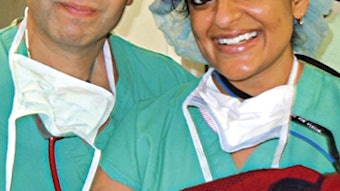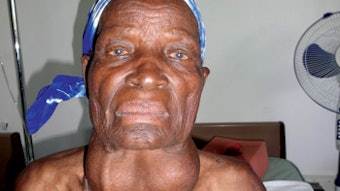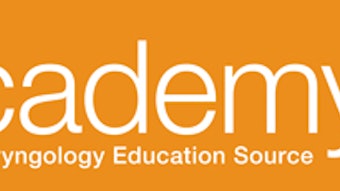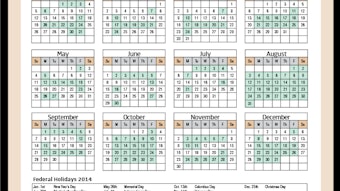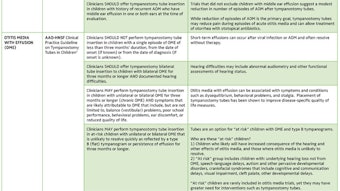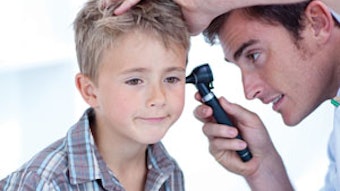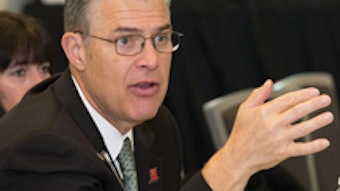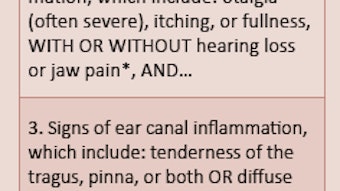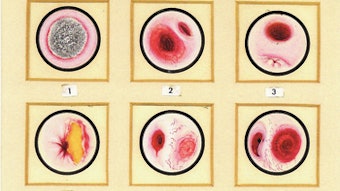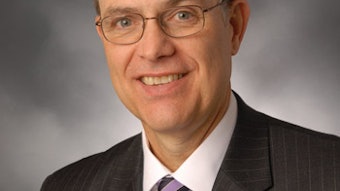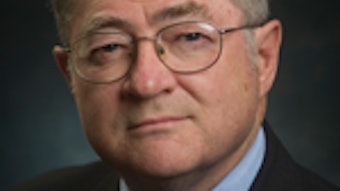The Otolaryngologist As Educator
When I became a physician, I did not realize I was signing on to a lifetime as an educator. While I knew I needed to remain up-to-date and participate in continuing medical education (CME), I did not realize I would spend a significant amount of my clinical time educating my patients and colleagues. As an academic physician, I understood I would be responsible for the training of medical students, residents, and fellows, and I have contributed to my fair share of book chapters and review lectures toward this endeavor. However, the more I learn, the more I realize I came unprepared for the job. In medical school, there was no instruction on curriculum development, skill assessment, or giving honest and constructive feedback, and yet I am expected to do all of these things. To address this gap in my knowledge, I have found courses, workshops, and articles (often in a piecemeal fashion) on giving feedback, curriculum development, and skill assessment to be the beginning of my educator education. Education Resources I am also assisted by an Academy that focuses many resources on education so I don’t have to do all the work myself. A quick look at Academy educational resources includes myriad educational formats that apply to learners at every level. Many are well-known such as the Home Study Course and Annual Meeting courses. However, there are a number of lesser-known products like the case-based Patient Management Perspectives (PMP) and AcademyQ™ App, which includes 400 study questions that are useful for exam preparation. There are also products geared to the residents like COCLIASM (Comprehensive Otolaryngologic Curriculum, Learning through Interactive Approach), products geared toward midlevel providers such as case-based COOLSM (Clinical Otolaryngology OnLine), and the ENT for the PA-C course, as well as resources for medical students (and future referrers) including the ENT Exam Video Series and PA-C Primary Care for Otolaryngology eBook. Kids E.N.T. Health Month In addition, the Academy assists us in our educational efforts through public education campaigns like the Kids E.N.T. Health Month being observed this month. This serves as an opportunity to educate our colleagues and patients about the appropriate diagnosis and management of pediatric ear, nose, and throat disorders. This is especially important as we reach out to our primary care partners, where more than 40 percent of their visits involve a pediatric ENT complaint. This campaign is also an opportunity to market our services and the Academy provides numerous resources (http://www.entnet.org/kidsent), including sample outreach letters to the media, fact sheets on common disorders, and links to pediatric otolaryngology organizations. While the Academy develops and promotes tools to treat and educate patients, none of them are effective unless they are used. Kids E.N.T. Health Month is an established occasion for us to promote both children’s health and our specialty, and the best part is, the Academy has really done most of the work. 2014 AAO-HNS/F Leadership Forum In addition to the Kids E.N.T. campaign, the Academy continues to provide education to members and our legislators on state and federal legislative issues. We accomplish this through our excellent legislative staff, ENT Advocacy Network, and the I-GO Program (designed to promote interactions with legislators in their home districts). In addition, the new AAO-HNS/F Leadership Forum (March 2-3 in Alexandria, VA) replaces the traditional advocacy day with a focus on both advocacy training for otolaryngologists and practice management education, which is offered with some free CME this year. This forum is designed to educate us on the topics such as clinical practice guidelines, current federal legislation, alternative payment models, and transition to ICD-10 coding. As in previous years, the candidates for AAO-HNS president-elect will be speaking at the candidates’ forum during the Board of Governors meeting that will occur during that event, giving us an opportunity to ask questions of the candidates directly. Unlike in previous years, we will not be visiting the Hill to meet our legislators and their staff, but will be equipped with the tools to conduct meetings in our home districts. (For more information see: www.entnet.org/LeadershipForum.) Whether you are in a private practice, a multispecialty group, or academic practice, each of us is an educator. I, for one, appreciate the plethora of educational opportunities and tools that are offered by the Academy and hope that you will join me to educate ourselves and our peers through the Kids E.N.T. campaign and the Academy’s Leadership Forum.
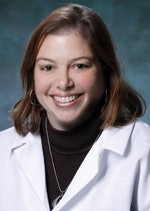 Stacey L. Ishman, MD, MPHBOG Member-at-Large
Stacey L. Ishman, MD, MPHBOG Member-at-LargeWhen I became a physician, I did not realize I was signing on to a lifetime as an educator. While I knew I needed to remain up-to-date and participate in continuing medical education (CME), I did not realize I would spend a significant amount of my clinical time educating my patients and colleagues. As an academic physician, I understood I would be responsible for the training of medical students, residents, and fellows, and I have contributed to my fair share of book chapters and review lectures toward this endeavor. However, the more I learn, the more I realize I came unprepared for the job.
In medical school, there was no instruction on curriculum development, skill assessment, or giving honest and constructive feedback, and yet I am expected to do all of these things. To address this gap in my knowledge, I have found courses, workshops, and articles (often in a piecemeal fashion) on giving feedback, curriculum development, and skill assessment to be the beginning of my educator education.
Education Resources
I am also assisted by an Academy that focuses many resources on education so I don’t have to do all the work myself. A quick look at Academy educational resources includes myriad educational formats that apply to learners at every level. Many are well-known such as the Home Study Course and Annual Meeting courses. However, there are a number of lesser-known products like the case-based Patient Management Perspectives (PMP) and AcademyQ™ App, which includes 400 study questions that are useful for exam preparation. There are also products geared to the residents like COCLIASM (Comprehensive Otolaryngologic Curriculum, Learning through Interactive Approach), products geared toward midlevel providers such as case-based COOLSM (Clinical Otolaryngology OnLine), and the ENT for the PA-C course, as well as resources for medical students (and future referrers) including the ENT Exam Video Series and PA-C Primary Care for Otolaryngology eBook.
Kids E.N.T. Health Month
In addition, the Academy assists us in our educational efforts through public education campaigns like the Kids E.N.T. Health Month being observed this month. This serves as an opportunity to educate our colleagues and patients about the appropriate diagnosis and management of pediatric ear, nose, and throat disorders. This is especially important as we reach out to our primary care partners, where more than 40 percent of their visits involve a pediatric ENT complaint. This campaign is also an opportunity to market our services and the Academy provides numerous resources (http://www.entnet.org/kidsent), including sample outreach letters to the media, fact sheets on common disorders, and links to pediatric otolaryngology organizations.
While the Academy develops and promotes tools to treat and educate patients, none of them are effective unless they are used. Kids E.N.T. Health Month is an established occasion for us to promote both children’s health and our specialty, and the best part is, the Academy has really done most of the work.
2014 AAO-HNS/F Leadership Forum
In addition to the Kids E.N.T. campaign, the Academy continues to provide education to members and our legislators on state and federal legislative issues. We accomplish this through our excellent legislative staff, ENT Advocacy Network, and the I-GO Program (designed to promote interactions with legislators in their home districts). In addition, the new AAO-HNS/F Leadership Forum (March 2-3 in Alexandria, VA) replaces the traditional advocacy day with a focus on both advocacy training for otolaryngologists and practice management education, which is offered with some free CME this year. This forum is designed to educate us on the topics such as clinical practice guidelines, current federal legislation, alternative payment models, and transition to ICD-10 coding.
As in previous years, the candidates for AAO-HNS president-elect will be speaking at the candidates’ forum during the Board of Governors meeting that will occur during that event, giving us an opportunity to ask questions of the candidates directly. Unlike in previous years, we will not be visiting the Hill to meet our legislators and their staff, but will be equipped with the tools to conduct meetings in our home districts. (For more information see: www.entnet.org/LeadershipForum.)
Whether you are in a private practice, a multispecialty group, or academic practice, each of us is an educator. I, for one, appreciate the plethora of educational opportunities and tools that are offered by the Academy and hope that you will join me to educate ourselves and our peers through the Kids E.N.T. campaign and the Academy’s Leadership Forum.
